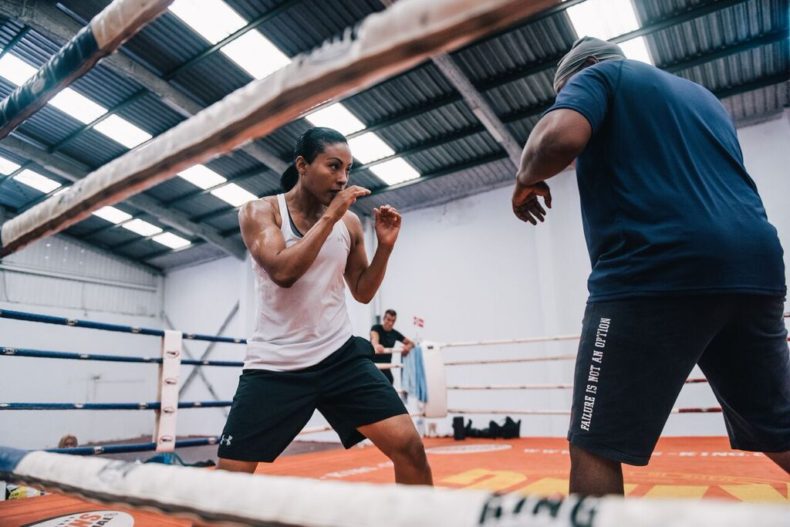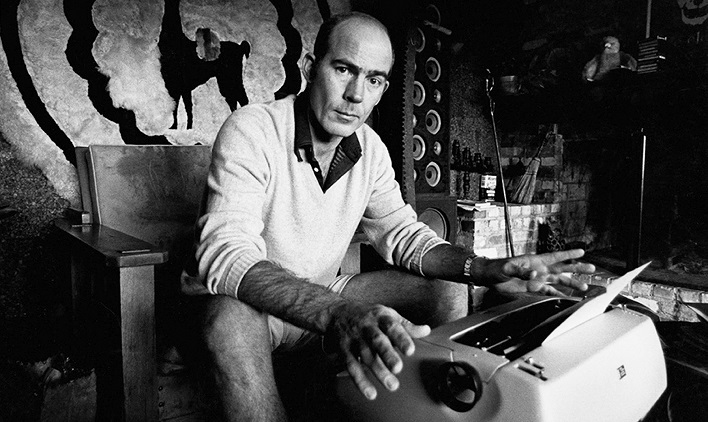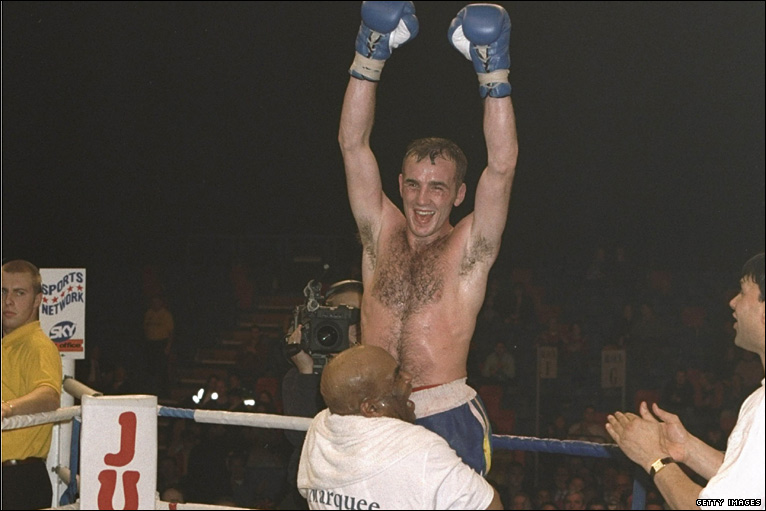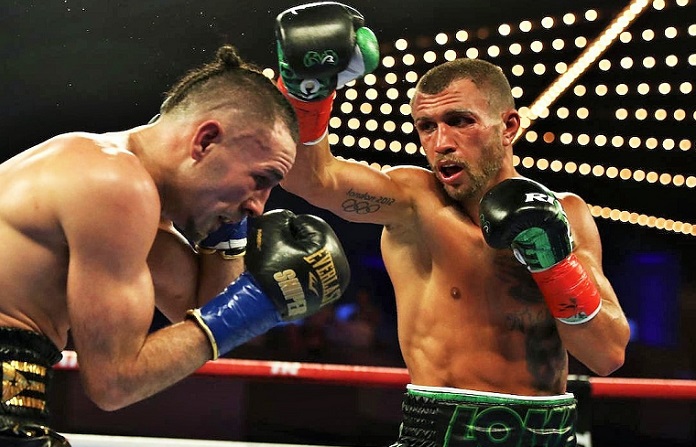Cecilia Braekhus: The Battle of Bergen
If boxing– a proverbial old boys club of backroom deals, political maneuvering, and promotional cold wars — tends to be slow to adapt to the winds of change, the 2016 Olympic Games could very well end up being a watershed moment in the sport. With the women’s competition enjoying its second iteration on the sport’s grandest amateur stage, a slew of elite talent opted to enter the paid ranks after competing in Rio de Janeiro, joining consensus pound-for-pound stalwart Cecilia Braekhus (30-0, 8 KOs) in a deepening talent pool.
Indeed, the likes of Nicola Adams (2-0, 1 KOs), Katie Taylor (5-0, 3 KOs), 2012 U.S. Olympian Marlen Esparza (2-0), and prodigy Claressa Shields (2-0, 1 KO) have infused women’s boxing with newfound excitement, displaying elite skills to go along with sterling amateur credentials and genuine charisma. As the sport only promises to grow in popularity thanks to the possibility of Olympic glory and more investment and interest in the pro ranks, the future appears limitless.
But while many are eager to anticipate how long someone like Claressa Shields will reign, the present cannot be ignored. And when it comes to setting the exceptional standard to which all female pugilists must aspire, the conversation, at this particular moment, starts and ends with Cecilia Braekhus.
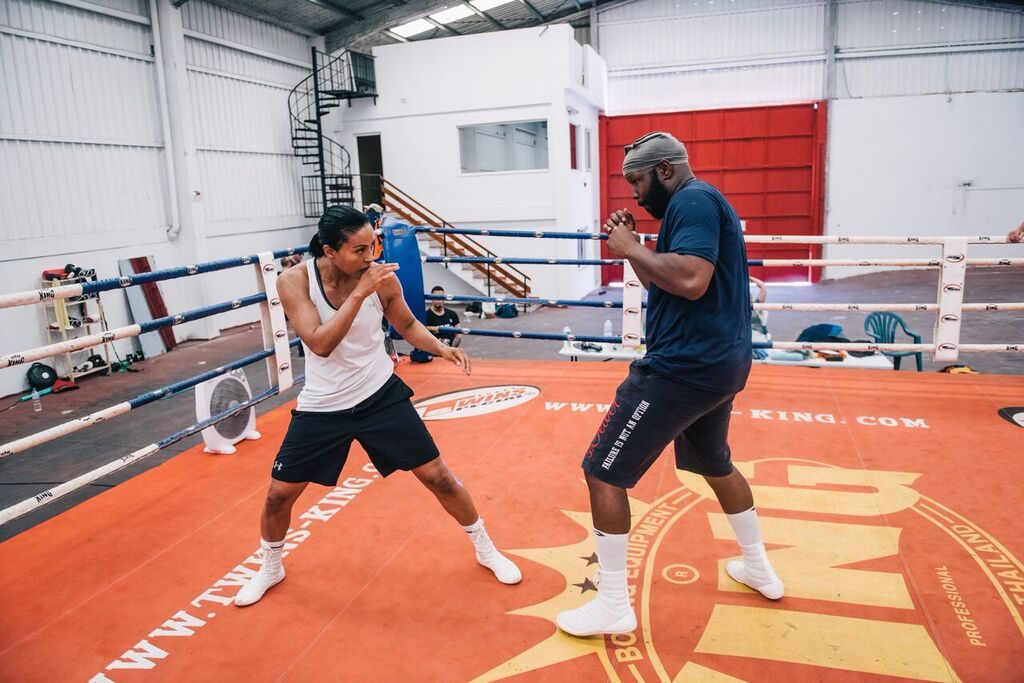
Braekhus, who is originally from Columbia but was adopted at the age of two by her Norwegian parents, began her career by escaping out her bedroom window as a teenager for clandestine training sessions in a country where boxing was illegal for decades. Even as Braekhus ascended to the championship level, winning a world title in only her 11th bout, she still couldn’t fight or train in Norway. After tirelessly working for seven years to lift Norway’s boxing ban, including consulting with Prime Minister Erna Solberg, Braekhus has contested her last two matches, both decisive wins, in Oslo.
While this has undoubtedly been transformative and validating, Cecilia Braekhus is set to add another chapter to her legacy when she fights for the first time in her home city of Bergen on Friday night against WBC super lightweight champion Erica Anabella Farias, who is moving up in weight for what certainly qualifies as a super fight for women’s boxing.
“Erica Farias is the toughest opponent of my career,” Braekhus said via press release. “She’s moving up from the junior welterweight division where she’s the WBC champion and one of the best fighters in the division.
“I know Farias is coming for all my belts and I’m up to the challenge. This is my true homecoming as I’ve lived in Bergen since the age of two and we’re expecting a huge crowd of close to 15,000 fans. No way I won’t be ready.”
To say Braekhus is popular in Norway is something of an understatement. Consider that her first fight there, which saw her bludgeon KO artist Anne Sophie Mathis in two rounds, was watched by 50 percent of the country’s population via terrestrial television and drew a raucous live crowd of 10,000. The demand for Braekhus in a country hardly known for pugilism has only continued to skyrocket since, and this past February’s outclassing of Klara Svensson, whose only other setback came against Farias, was the ideal springboard for this Friday’s homecoming.
At age 35, Braekhus, who presently holds five major titles, shows no inklings of athletic mortality, which is encouraging given that the next several years could see the emergence of myriad viable contenders to her crown. But first comes the Farias test, which will require the optimal version of Braekhus’ unique blend of skills, savvy, and mettle. As a battle-tested veteran, part of Braekhus’ success seems to be grounded in the pursuit of new challenges, including entering the promotional side of the sport; however, boxing does certainly come first, and don’t make the mistake of assuming Braekhus fights in some sort of robotic European style.
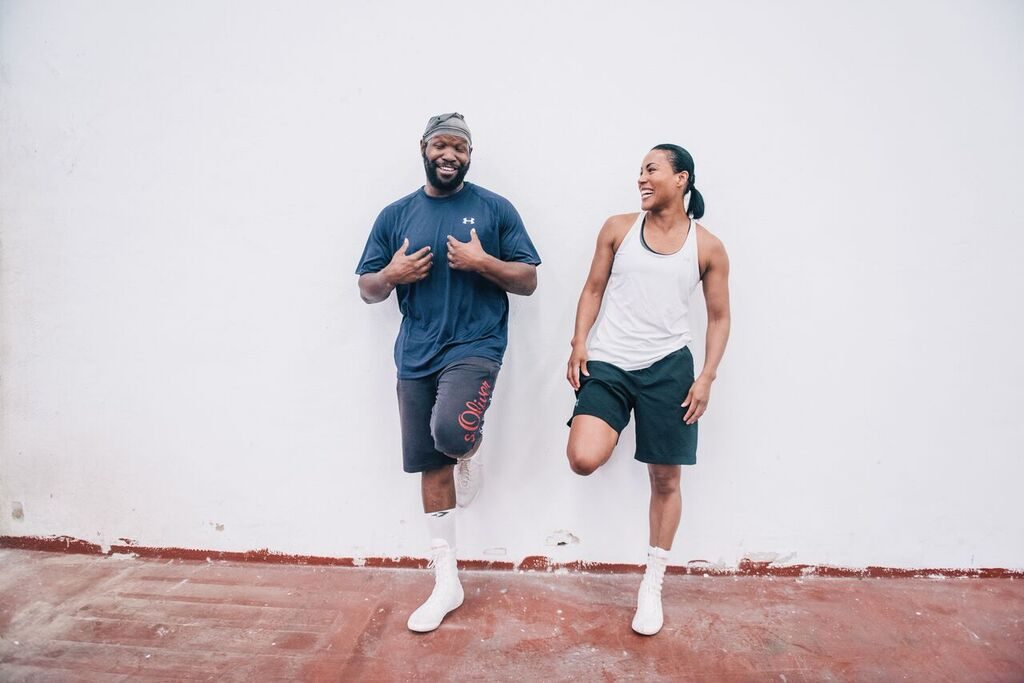
“This training camp has been terrific with Johnathon [Banks],” Braekhus said of her partnership with the Emanuel Steward protégé. “This is our fourth fight together and I’m continuing to learn a great deal from him. In my last three fights I’ve become much more of an aggressive fighter and he’s truly brought that out in me — more of an American and Detroit style of fighting.”
This stylistic shift could define the latest act of Cecilia Braekhus’ career in a manner that might have seemed unfathomable before her recent triumphs in Norway and her increased visibility thanks to the tireless work of K2 Promotions. In only her eighth fight, Braekhus won a unanimous decision on the undercard of Arthur Abraham’s 2008 knockout of Edison Miranda in the United States; since then Braekhus has not crossed the Atlantic for a sanctioned prizefight.
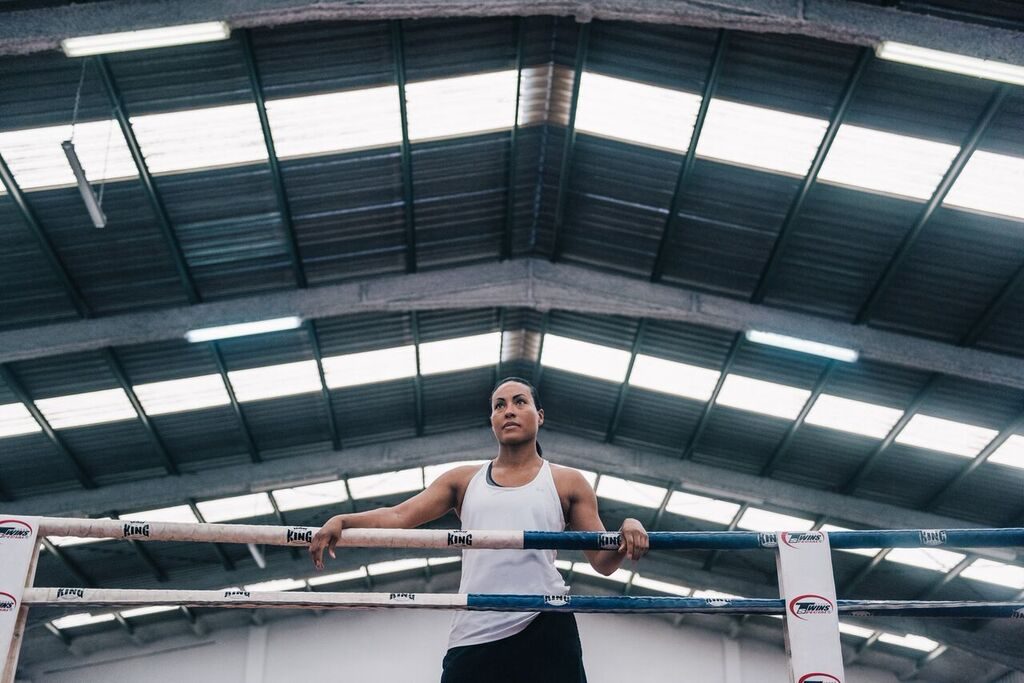
But if Cecilia Braekhus’ present trajectory continues on its suddenly meteoric course, the Farias bout is the perfect platform to launch her into a mega fight on U.S. soil. While a slot on the pay-per-view undercard of Gennady Golovkin’s rabidly anticipated fight against Canelo Alvarez in September may be a step too far at this still-nascent stage of big time women’s boxing, don’t think for a second that’s because Braekhus isn’t worthy. She was, is, and should continue to be.
So while fight fans, whether resistant or open-minded, speculate about the future of women’s boxing — an increasingly (and encouragingly) ubiquitous topic in the sport — it’s important to avoid navel-gazing. Major women’s fights are happening now. And thanks to Cecilia Braekhus leading the charge, we’re actually in the midst of something important, as opposed to just being on the precipice.
— Zachary Alapi

